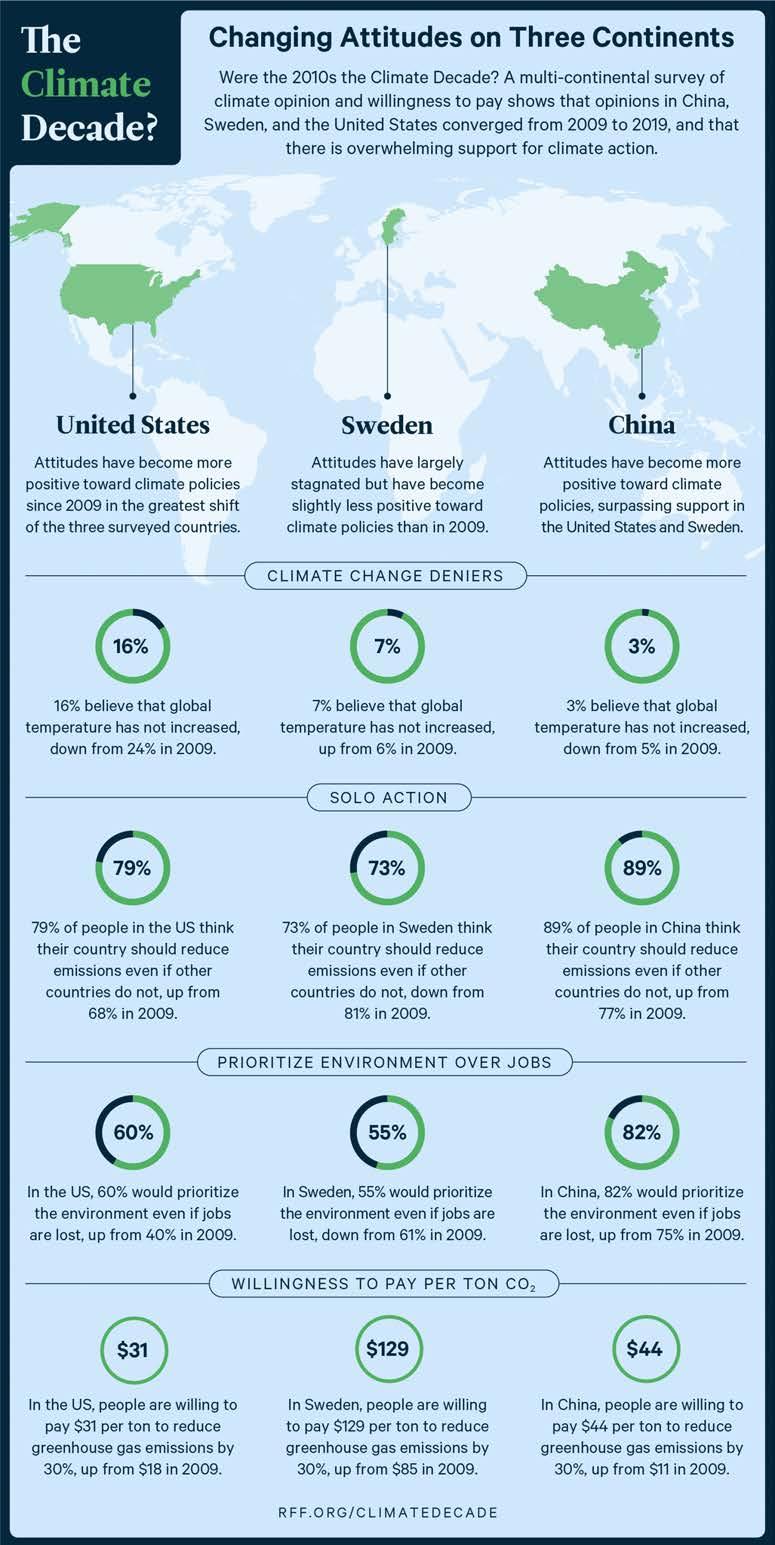5. SUSTAINABLE CLIMATE TRANSITION
Climate economics support for the Paris Agreement CHRISTIAN AZAR, THOMAS STERNER, AND DANIEL JOHANSSON
Refined climate-economic modeling shows that an economically optimal climate policy is in line with the Paris Agreement’s 2°C goal. This research as part of the Mistra Carbon Exit program, published in Nature Climate Change, may increase support for climate targets in line with the Paris Agreement and increase the level of acceptance of carbon prices. For at least a decade, a clear division has existed between the United Nations Framework Convention on Climate Change (UNFCCC) negotiations, which aim for stabilization of the global mean surface temperature at 2°C or less above the pre-industrial level, and the main message from Cost-Benefit Analyses (CBAs) of climate change, in which economic estimates of the damages of climate change are weighed against the cost of reducing emissions. Based on the latter approach, the recipient in 2018 of the Sveriges Riksbank Prize in Economic Sciences in Memory of Alfred Nobel, William Nordhaus, has argued that the world community should instead aim for a global temperature increase of 3.5°C in Year 2100 (Nordhaus, 2019). More accurate calibration and updated estimates With our new research, we believe that this discrepancy between mainstream CBAs and the UNFCCC can be laid to rest. We show that the climate targets of the Paris Agreement may very well be optimal even in Dynamic Integrated Climate Economy modeling (DICE), that is the Integrated Assessment Models (IAMs) developed and used by Nordhaus, when appropriately updated. Changes made to DICE include a more-accurate calibration of the carbon cycle and energy balance model, and updated climate damage estimates. To determine economically “optimal” climate policy paths, we use evidence from a range of expert views on the ethics of intergenerational welfare. Using the updates that we deploy from the climate and
economic sciences jointly, we find that around threequarters and one-third of the expert views on the ethics of intergenerational welfare translate into economically optimal climate policy paths that are consistent with the 2°C and 1.5°C targets, respectively. Model output supports CO2 prices In the broader international discussions on climate policy, this research may help to increase support for climate targets in line with those adopted in the Paris Agreement, as well as to increase the level of acceptance of carbon prices (the ‘Social Cost of Carbon’), in line with meeting the adopted climate targets. For example, the model output provides support for CO2 prices on a par with the current CO2 tax in Sweden, which is roughly three-times higher than the prevailing allowance price in the EU ETS. Furthermore, the Biden Administration in the USA is on the verge of updating the numbers for the Social Cost of Carbon, and it is possible that our research will have an influence on those discussions. Only time will tell.
Literature Hänsel M.C., Drupp M.A., Johansson DJ.A., Nesje F., Azar C., Freeman M.C., Groom B., Sterner T., 2020, How climate economics supports the UN climate targets, Nature Climate Change volume 10, pages 781–789.
59
























